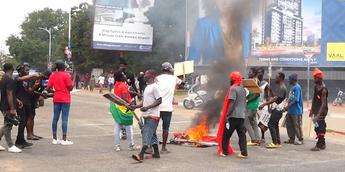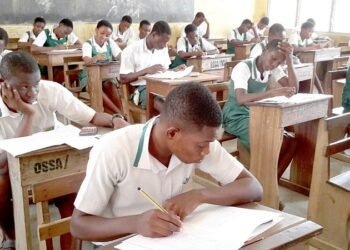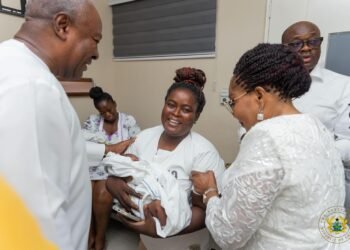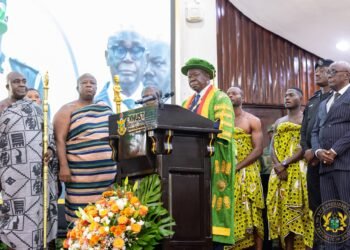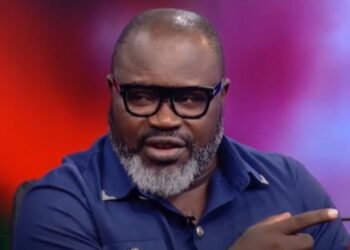A major confrontation has erupted broke out today, Sunday, September 22, between protesters from the Democracy Hub and the Ghana Police Service.
The altercation, which occurred on the second day of a planned three-day protest, has drawn national attention. The Democracy Hub, a civil society group, organized the demonstration to express its dissatisfaction with what it calls economic mismanagement and other critical national issues under the current government.
The protests have been led by Oliver Barker-Vormawor, a prominent legal practitioner and social activist.
Oliver Barker-Vormawor, the protest leader, sharply criticized the actions of the Ghana Police Service, accusing them of using excessive force to silence peaceful demonstrators.
“We are simply exercising our constitutional right to protest. This is a democracy, and it is our duty to hold those in power accountable. The police have a responsibility to protect that right, not to stifle it.”
Oliver Barker-Vormawor, Legal Practitioner and Protest Leader
The protesters, undeterred by the day’s events, have vowed to continue their demonstrations. They remain steadfast in their commitment to ensuring that the grievances of the Ghanaian people, particularly on matters related to the economy, governance, and public service delivery, are addressed.
The group seeks to push for reforms they believe will lead to better governance and economic improvements for the Ghanaian people. Their demands range from addressing high inflation and unemployment rates to improving public service accountability.
The atmosphere on the second day of the demonstration was tense as protesters gathered in the heart of the capital, Accra, to continue their calls for economic reforms.
The protest began peacefully, but soon turned chaotic when demonstrators attempted to block key roads, causing disruptions to public order and traffic flow. The police, determined to maintain peace, responded by dispersing the crowd and making arrests.
Eyewitnesses reported that the confrontation escalated when a faction of the protesters ignored police warnings and moved toward the 37 Roundabout, a critical traffic hub in Accra.
This led to a brief but intense physical altercation between protesters and officers, as law enforcement tried to prevent further disruption to the city’s transportation routes.
The police acted swiftly to restore order, using non-lethal crowd control methods and arresting key individuals they claimed were instigating the unrest.
Police Defend Their Actions
In response to the growing backlash, the Ghana Police Service released a press statement on Sunday, describing the protesters’ actions as “unGhanaian” and a threat to public safety.
The police defended their response, stating that they were acting within the law to prevent the demonstration from spiraling out of control and causing further disturbances.
“We respect the right of citizens to assemble and express their views. However, this right must be exercised responsibly, without causing harm or inconvenience to others. Blocking major roads and creating public disorder is not the Ghanaian way of resolving issues,”
Ghana Police Service
The police emphasized their duty to maintain public peace and vowed to use all legal means to ensure that the protests do not threaten the safety of citizens or impede traffic in Accra. They also indicated that the arrested individuals would be processed according to the law and could face charges for their involvement in the disturbances.
As tensions rise, both the protesters and the police are preparing for what could be a highly charged final day of demonstrations on Monday. The Democracy Hub has declared that it will not back down from its demands, even as authorities signal their intent to prevent further disruption in the capital.
For now, Accra remains on high alert as both sides brace for a potentially decisive showdown on the final day of the protest. The country, already grappling with numerous challenges, may find itself at a crossroads, with the outcome of these protests setting the tone for future engagements between civil society and the state.
READ ALSO: Dissanayake Wins Sri Lanka’s Presidential Election

